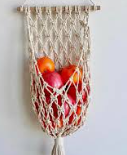The arrival of winter cold brings its share of dangers for the preservation of your pipes. In order to avoid the repercussions of a possible freeze and the costs that will apply to repair the damage, here are all our recommendations. we need to know how to keep pipes from freezing in crawl space.
First steps to prevent pipes from freezing winter
At the end of the fall, shut off the water supply from the outside and be sure to allow the water to drain completely. Although some droplets will certainly remain inside the pipes, they will have enough space to expand following their transformation into small ice particles. Do not neglect to empty the sprinkler pipes that protect you in case of fire.
Regarding the water inlet valve, it must also be closed. Ideally, insulate the part of the pipe underneath. If your house is equipped with an artesian well, do not forget to empty the pump tank. With regard to the water heater, you must also empty it, taking care to cut the electrical circuit first. If you have a gas tank, do the same thing and turn off the gas valve before you start.
Then unplug the hose from the dishwasher and empty it. Lastly, do not forget to empty the pumps from the pit and sump.
Beware of cracks
Be sure to carefully seal the cracks around the pipes if necessary, this will prevent water from accumulating and reaching the pipes. Do not leave cracks on the rest of the walls, but they can still let cold inside your house and freeze the pipes.
When the winter cold reaches its peak, be sure to let a trickle of water flow through the pipes that pass through the outside. Allowing the water to circulate on a constant basis inside the piping will limit the risk of freezing.
Some extra tips on how to keep pipes from freezing in crawl space.
In case of absence…
Among the other important recommendations to put in practice to avoid seeing your pipes freeze, avoid too drastic heating down during the night or during long periods of absence from your home. Ideally, always keep the temperature above 16 degrees Celsius. Below 7 degrees, you risk serious trouble.
But what should be done in case of a heating failure? In this case, let a stream of water flow steadily, this will prevent the stagnant water inside the pipes from freezing.
In terms of the water supply, it will be important to stop and drain the remaining water inside the pipes by opening the faucets. Remember that even a very fine amount of water can be used to freeze your pipes.
In rooms without heating
What to do for pipes that are in rooms where there is no heating? In this case, the best option for you is to insulate the pipes, fittings, and faucets with insulating foam. So go around the attic, the crawl space (if you have one) and the garage. Remember that pipes located indoors while being close to an outside wall are also subject to cold. It will therefore also proceed to their isolation. To accomplish this task, you can choose glass wool, fabric, heating cable or polystyrene.
Another idea that comes to mindless often: leave the cabinet doors open inside the house. This trick allows the ambient air to heat the pipes and thus prevent their cooling. Also, be sure to close your garage doors to prevent cold air from entering the garage.
At the cottage when unoccupied
Closing a cottage after the end of the fall and warm weather requires some precautions. You must, therefore, make sure of:
- Empty toilets and their tanks;
- Shut off the water supply;
- Drain the pipes by opening them and leaving as much water as possible to drain. Note that if the pipe inside remains exposed to cold, it will be good to insulate it with a cloth wrapped around it and covered with plastic;
- Ensure the protection of the pipes and external pipes by wrapping them with insulation (polyethylene foam or mineral wool). Generally, 10 cm of insulation is recommended;
- Disconnect the hoses from the dryer and washer and drain the valve properly (by closing the water first, of course).
Other precautions for protecting your plumbing pipes at the cottage
- For your septic tank, it may be necessary to empty it before spring. In order to judge if it will be necessary to do so, measure the height of the mud;
- For better preservation of your garden hoses, store them inside your shed;
- If you have a sprinkler system for the outdoor lot, it will be necessary to purge the system with compressed air, even if the system has an automatic purge function.






